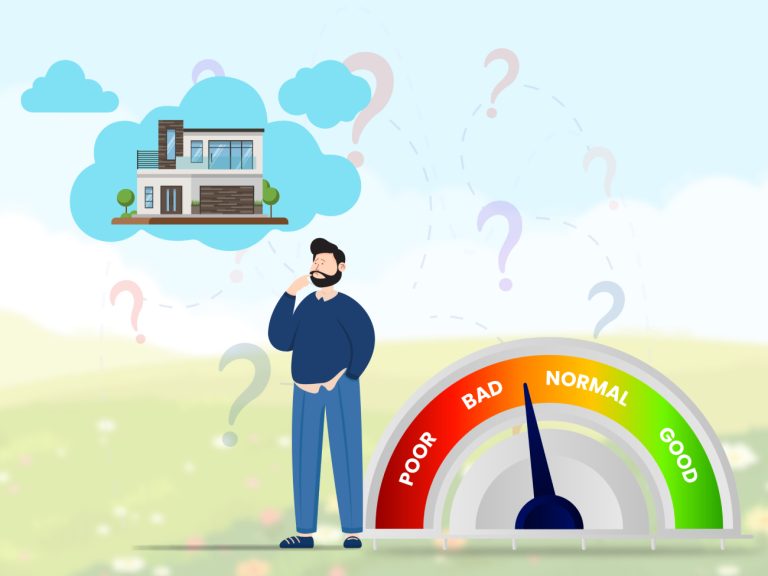BASIC TEAM
Last Updated on 22nd January 2025

BASIC TEAM
Last Updated on 22nd January 2025
Having a low credit score can be discouraging and make you feel like getting a home loan is out of the question. While it is true that your credit score makes a big difference when applying for a loan, there are still alternatives. You can talk to mortgage lenders to see what options are available, as well as look into alternative loan products.
Your lender may be able to offer assistance. Many have programs designed to assist people in taking out a loan despite a low credit score. Speak with a mortgage specialist to explain your situation; they will be able to advise you on the best course of action for obtaining a loan. Finally, you can work to rebuild your credit score and establish a positive repayment history. This requires being very conscious of your financial choices and properly managing your budget and finances. It may take some time, but it is possible to improve and repair your credit score.
Table of Contents
But is there any possibility of obtaining an affordable loan, even though you have a very low score?
The first question on everyone’s mind would be – what is the lowest acceptable credit score to be eligible for a home loan? There is no straightforward answer to this question. Different banks and financial institutions have different acceptable limits for credit scores. CIBIL scores are the most commonly used type of credit score in India. Typically, a CIBIL score of 600 or below is considered low. You would likely have trouble getting a home loan in India with a score in this range.
With a score between 650-700, you may find a few options for a loan. A score above 700 is the safest bet; you are eligible to avail of loans from the best home loan banks in India. India, as a developing country, has several people who have low CIBIL scores. The average CIBIL score in 2021 was 750. Despite this, the Indian home loan market is one of the largest in the world with a total cover of around INR 20 trillion.
Suggested read: Best credit score for loan
Your housing dreams may seem impossible to realize if you have a low credit score. However, they are not entirely out of your reach just yet. There are a few things you can do to strengthen your loan application and increase your chances of being accepted for the loan.
Applying with a co-applicant who has a good score will boost your chances, however, it still does make you a shoo-in for the loan. It is important to keep in mind that the final call is always taken by your lender; they can choose to reject your loan despite your co-applicant having a strong credit score.
If you have defaulted on loan payments in the past, getting a NOC or No Objection Certificate from the bank or lending institution that had lent you your loan will set you well on your way to obtaining fresh loans. You can get the NOC by paying an amount as a settlement. This will help prove your creditworthiness to other lenders.
Regular commercial banks have very strict rules and regulations which can make it hard for you to qualify for a home loan with a poor credit score! A way around this is to try and obtain loans from Housing Finance Companies or other Non-Banking Financial Companies, which have slightly a slightly lower cap on the minimum credit score you need to avail of a home loan. Some of the best housing loans in India come from Housing Finance Companies.
If all else fails, the best option in your hands is to increase your score. There are several ways you can do this. Paying off all your EMIs promptly is the most important. You should also refrain from applying for new loans for a while until your current debts have been settled. Being regular and up-to-date on your loan repayment schedule is a surefire way to improve your score.
An important point to note is that a home loan obtained with a poor credit score comes with its own set of risks. Defaulting on the loan or failing to make timely payments will further drag down your score. Hence, handling such loan repayments with utmost care is crucial.